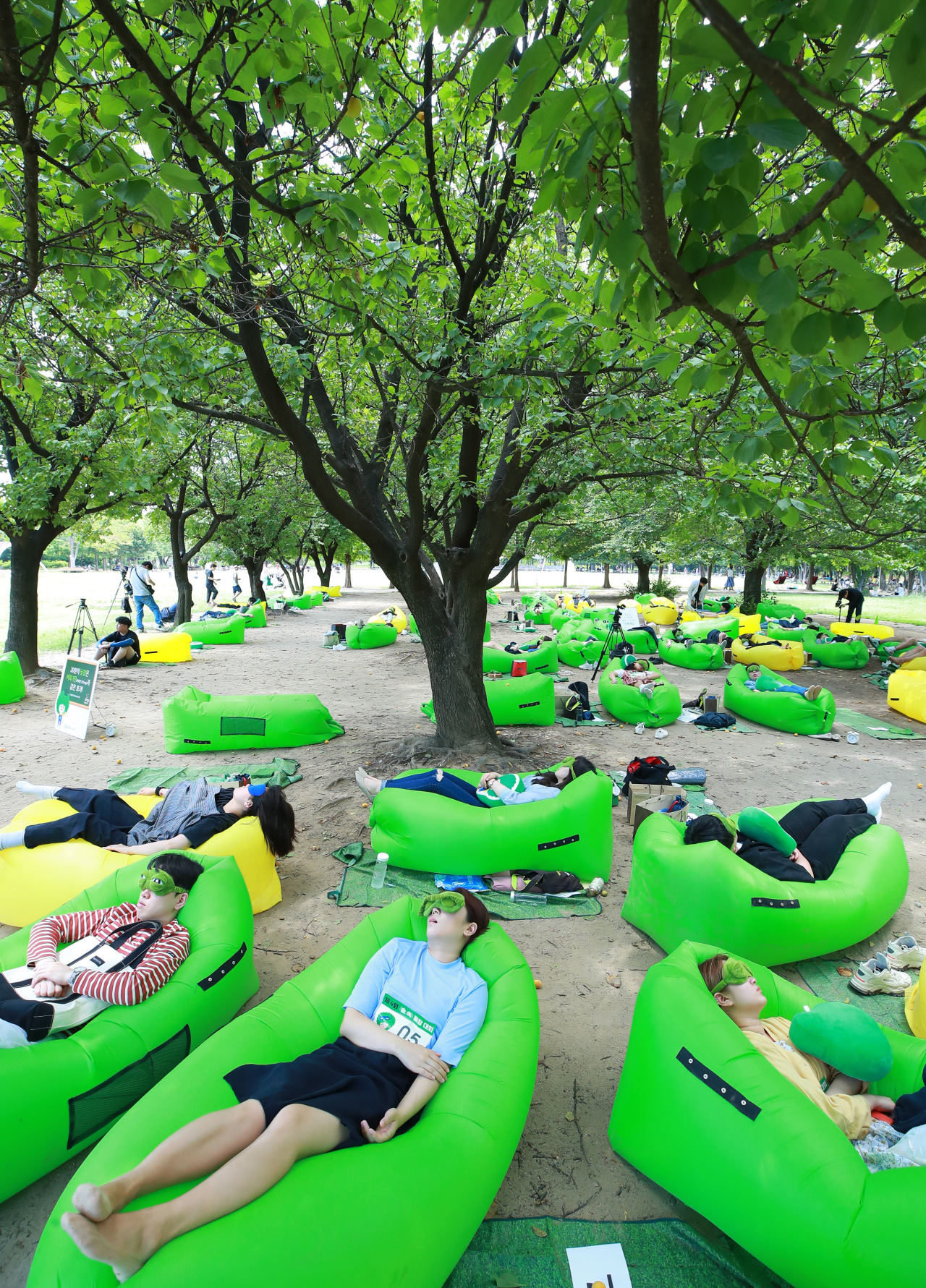It is well-known that South Koreans work too much and don’t get enough sleep. But as more Koreans become aware of the impact of sleep deprivation on health, memory, work productivity and other aspects of life, they are more willing to invest in a good night’s sleep.
Among them is Kang Hyo-jung, an office worker in Bucheon, west of Seoul. Sleeping around six to seven hours daily on weekdays, she struggles to get up in the morning, though she needs to head out by 7:30 a.m. for a one-hour commute to work. “I feel like I am not getting enough sleep, but I don’t want to go to bed early,” she said.
To improve the quality of sleep, she has bought a blackout curtain and a “pass-out” pillow. “If only I can fall asleep more quickly and easily, I am willing to spend more,” she said.
 |
People lie down under the trees in Seoul Forest in Seoul's Seongdong district on Sunday, part of a "nap competition organized by Yuhan Kimberly. One participant who snoozed for over 2 1/2 hours won the 500,000 won ($433) cash prize.(Yonhap) |
That willingness is driving the growth of “sleeponomics” in Korea -- a market for all things sleep related, from purportedly sleep-conducive pillows and mattresses to high-tech gadgets and dietary supplements.
According to the Korea Sleep Industry Association, this market is expanding rapidly, rising from 500 billion won ($432 million) in 2015 to an estimated 3 trillion won in 2019.
In Seoul’s office areas, cafes providing a place for power naps are a hit among sleep-deprived workers.
There are employers -- though not many -- who have woken up to the benefits of napping for productivity, installing a sleeping room for the weary to have a quick lie-down.
Seo Jin-won, author of “Good Sleep, Good Life,” points out the country has traditionally linked sleep to laziness, even regarding it as being detrimental to success. He cites as evidence the idiom of “four hours pass, five hours fail,” which made many high school students stay up late at night cramming for the college entrance exam.
“It’s not about how long you are awake. It’s how you spend your time awake. Good sleep leads to good life,” he writes in the book.
In a 2016 report by the Organization for Economic Cooperation and Development, Korea ranked last out of 27 countries surveyed with the least amount of daily sleep at seven hours and 49 minutes. The snooze champion was France with eight hours and 50 minutes, while the average stood at eight hours and 22 minutes.
According to the US National Sleep Foundation, the ideal amount to sleep is seven to nine hours for adults, and eight to 10 hours for teenagers.
By Lee Sun-young (
milaya@heraldcorp.com)








